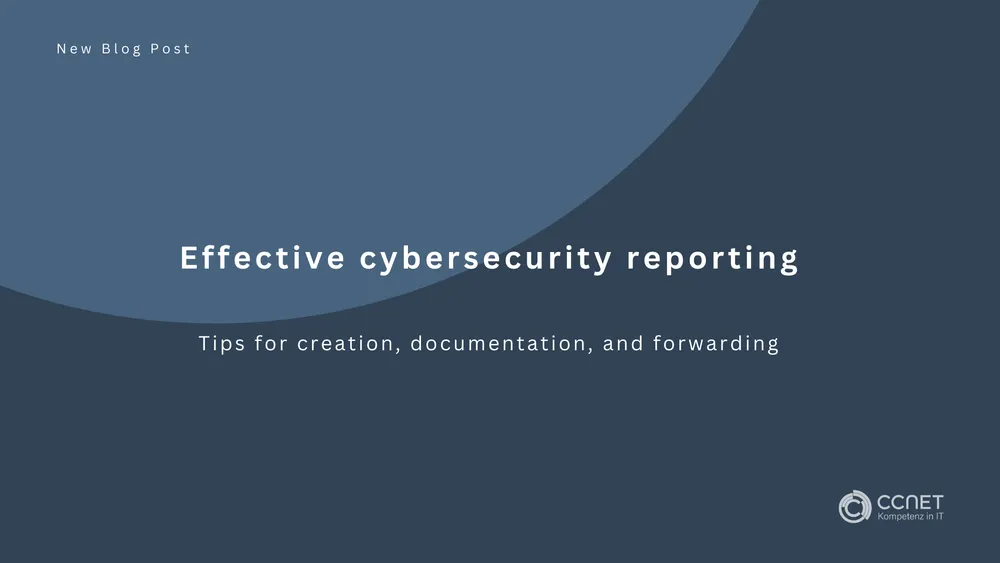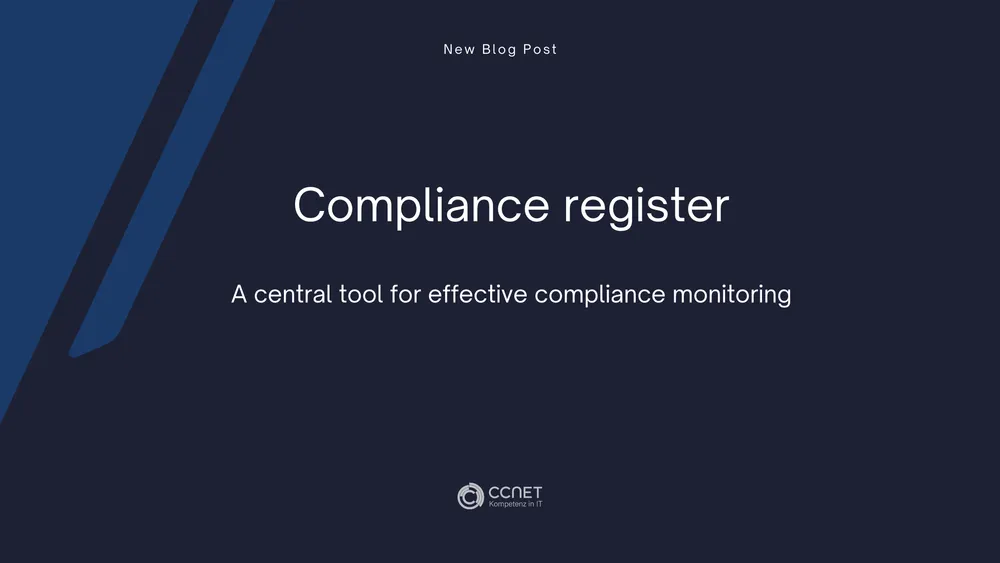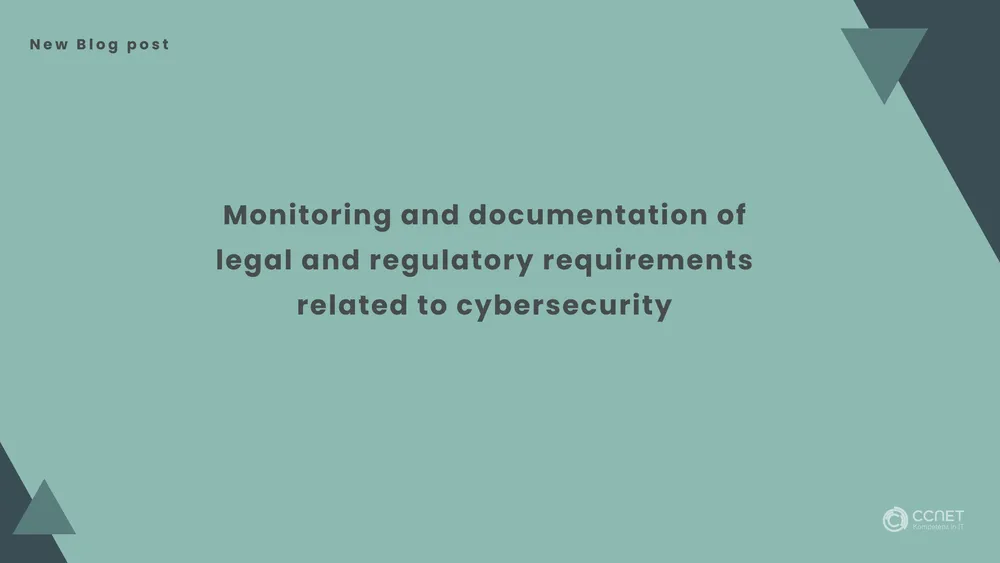
CCNet
Jan 5, 2024 • 2 min read

NIS2: A Catalyst for Enhanced Enterprise Cybersecurity
In our increasingly digitalized world, cybersecurity is no longer an option but a fundamental necessity. With the introduction of the NIS2 Directive, the European Union has taken a decisive step to strengthen cybersecurity across the continent. This directive is a key element of the European strategy to make businesses and their infrastructures more resilient against cyber threats. But how exactly can NIS2 help your company become more secure, and what specific measures are involved?
Further information can be found here:
IT-ConsultationStandardized Risk Management
A central aspect of the NIS2 Directive is the promotion of the implementation of uniform security standards and practices. These standards are essential to establish a coherent and effective risk management in companies. By applying these uniform guidelines, companies can improve their security measures, leading to more robust protection of their networks and systems. A standardized approach also allows for setting cross-industry security benchmarks and sharing best practices.
Increased Awareness
The NIS2 Directive emphasizes the importance of cybersecurity at all levels of a company. It aims to raise awareness of the risks associated with the digital world. This means that not only IT departments but all employees must be informed about potential cyber dangers. Increased awareness helps in identifying security gaps more quickly and responding accordingly. Training and regular information events can play a key role in this.
Enhanced Protection of Critical Infrastructures and Data
Another important aspect of the NIS2 Directive is the requirement for companies to protect their critical infrastructures and data more effectively. This includes the implementation of advanced security measures such as the encryption of sensitive information and protection against unauthorized access. Companies must continuously review and update their security protocols to ensure they can withstand the latest threats.
Early Detection and Response to Threats
A key element of NIS2 is the establishment of processes for faster detection and response to cyber threats. Companies must implement systems that enable them to detect attacks in real-time and respond quickly. This includes setting up security operation centers, continuous monitoring of network activities, and rapid analysis of security incidents. The ability to respond quickly to an attack can be crucial in minimizing damage and maintaining business continuity.
Strengthening Resilience Against Cyber Attacks
The NIS2 Directive not only supports companies in implementing security measures but also promotes the development of strategies to strengthen overall resilience against cyber attacks. This includes the development and implementation of emergency plans, regular security audits, and continuous improvement of the security architecture. Companies are encouraged to act proactively and prepare for potential cyber attacks rather than just reacting to incidents.
Conclusion
The NIS2 Directive provides a comprehensive framework that obliges companies in the European Union to improve their cybersecurity. Acting as a catalyst, it introduces standardized risk management practices, increasing security awareness, enhancing the protection of critical infrastructures and data, enabling early detection and rapid response to threats, and strengthening resilience against cyber attacks. NIS2 significantly contributes to creating a safer business world. This not only leads to stronger protection against cyber threats but also to increased trust from customers and partners in the digital economy. In a time when cyber attacks are becoming more sophisticated and frequent, compliance with the NIS2 Directive is essential for any company that wants to succeed in the digital world.


